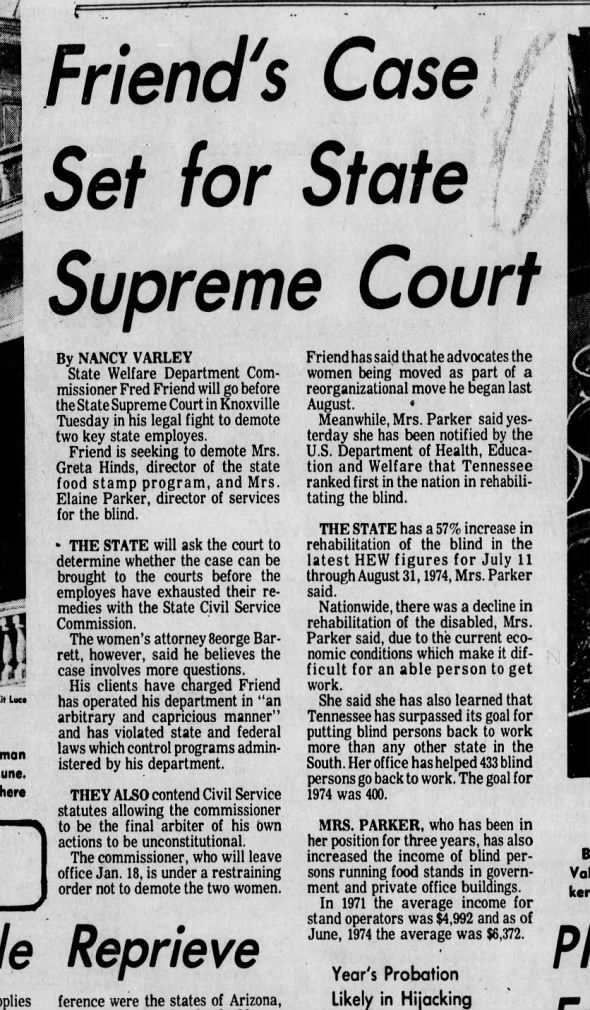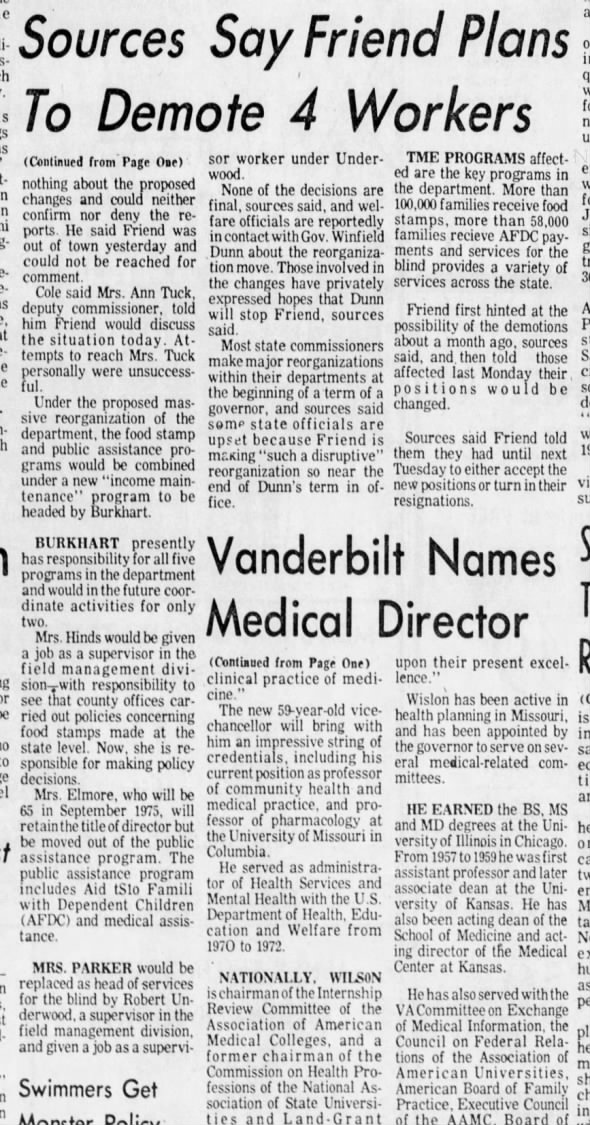In observance of Women’s History Month here in March 2022, I’d like to share this story.
Previous readers of this blog have seen how Elaine Parker devoted herself to serving others, with a particular focus on services for the blind. That, and her other vocations along the way–training wedding directors on special needs weddings, for example, and helping establish the Middle Tennessee Professional Chefs Association–were accomplished in Tennessee in the 1950s, 1960s, 1970s, 1980s, right on up until her 2021 passing. I will write more about her international, culturally informed wedding directing and culinary adventures–she visited 60 countries–in future installments. Miss Elaine, as many called her, wanted her obituary to focus on her positive accomplishments.
There is another aspect to her story, however, worth noting. She would not back down to the powerful in the face of injustice. As a woman heading a state program in the 1970s, she and another woman filed suit in 1974 charging that Tennessee State Welfare Department Commissioner Fred Friend’s plan to demote them was consistent with how Friend had “exhibited considerable hostility” toward them and their programs and had undertaken a “campaign of harassment” against them.
The Middle Tennessee Chapter of the National Association of Social Workers (NASW) announced the formation of a legal defense fund for the women and the NASW itself contributed funds to their defense.
Mrs. Greta Hinds, director of the Food Stamp Program, and Mrs. Elaine Parker, director of Services for the Blind, charged Friend operated his department “in an arbitrary and capricious manner” and violated state and federal laws which control programs administered by his department, including violating the state affirmative action program and Executive Order No. 17 of Tennessee’s governor by replacing the two women with men.
Just prior to taking their case to Tennessee’s State Supreme Court in January 1975, Elaine Parker was notified by the U.S. Department of Health, Education, and Welfare that Tennessee ranked first in the nation in rehabilitating the blind.
The state had a 57% increase in rehabilitation of the blind in the latest HEW figures for July 11 through August 31, 1974. Nationwide, there was a decline in rehabilitation of the disabled, due to current economic conditions which made it difficult for an able person to get work.
Tennessee surpassed its goal for putting blind persons back to work more than any other state in the South. Elaine Parker’s office helped 433 blind persons go back to work. The goal for 1974 was 400.
Mrs. Parker, who had been in her position for three years, had also increased the income of blind persons running food stands in government and private office buildings. In 1971, the average income for stand operators was $4,992 and as of June, 1974 the average was $6,372.
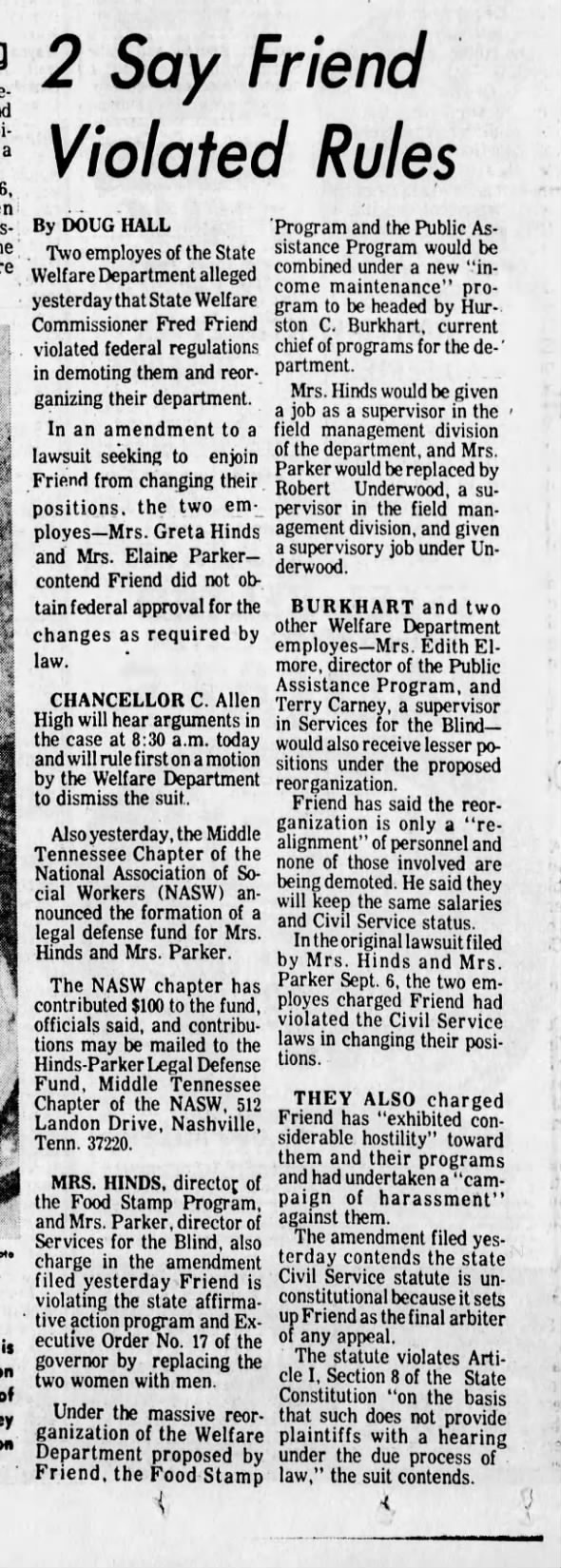
Friend’s plans were front page news on Friday, August 30, 1974.

As reported by DOUG HALL in a front page story in the 22 January 1975 edition of The Tennesseean:
State Welfare Commissioner Horace Bass yesterday rescinded the controversial plans of his predecessor, Fred Friend, to reorganize the department and demote four key department personnel. “We just didn’t agree with the decision of Mr. Friend to begin with,” Bass said. “We think the demotions just weren’t justified.”
BASS MET YESTERDAY afternoon with Gov. Ray Blanton and discussed the matter, and Bass said Blanton “concurred completely” with the decision. Bass said the decision will take effect immediately. The decision to nullify Friend’s reorganization plans makes moot a lawsuit which had prevented the demotions of two of the employees, Mrs. Greta Hinds, director of the state food stamp program, and Mrs. Elaine Parker, director of services for the blind.
“I am pleased that the governor appointed a commissioner who has the compassion to rescind an order which disrupted the entire department,” said George Barrett, the attorney who represented Mrs. Hinds and Mrs. Parker.
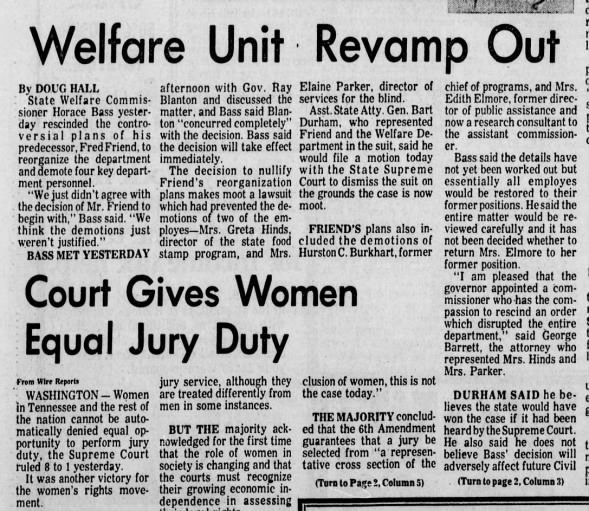
It was a page 11 story the day before, 21 January 1975, where Hall wrote:
The State Supreme Court has indicated it will not rule on a motion to dismiss a suit brought by two department employees until the new administration makes a decision in the matter. Mrs. Elaine Parker, director of services for the blind, and Mrs. Greta Hinds, director of the state food stamp program, filed suit in Chancery Court here last September asking that Friend be enjoined from demoting them. Chancellor C. Allen High issued a temporary restraining order which has prohibited the demotions thus far.

Parker and Hinds appear to have had some notion of the decision before it became public, as they issued invitations titled “Come Celebrate with Us” for Saturday, Jan. 18, 1975.
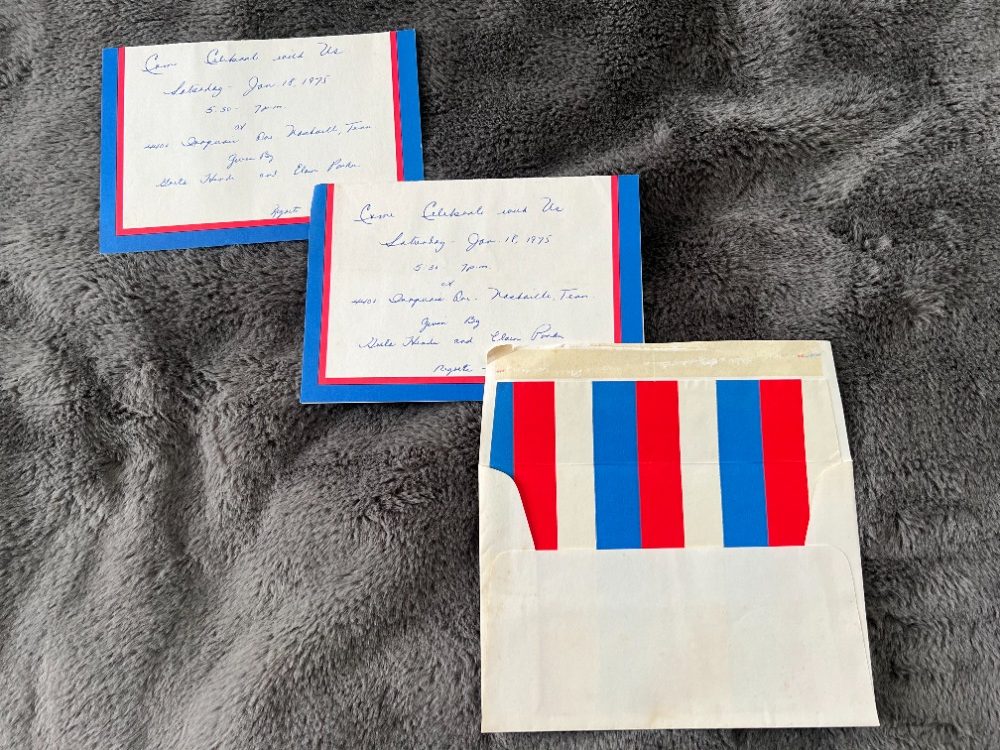
This blog draws considerably on reporting in The Tennessean, physical newspaper clips preserved in Elaine Parker’s files, and electronic clips from Newspapers.com.
